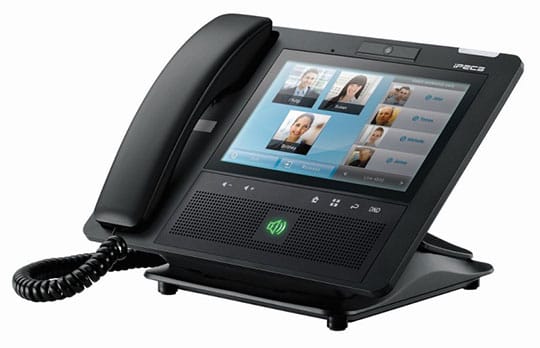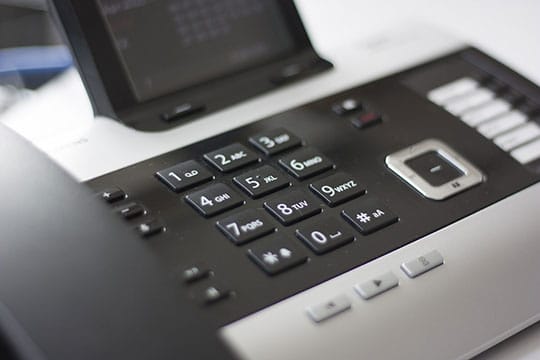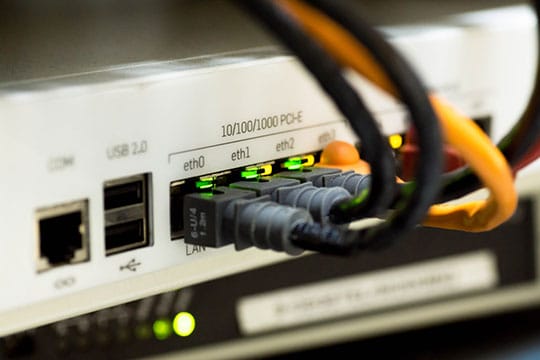Ever since VoIP emerged on the communication scene, it has led to various concerns. The first major worry was whether it would be able to deliver a clear voice quality? Could it guarantee a stable connection that won’t just drop in the middle of a conversation? VoIP has come a long way, and users can expect to have top-notch call quality and reliable service with the VoIP options available nowadays. Technology has advanced to such an extent that a popular VoIP service allows you to switch to low-bandwidth codecs in case the internet is acting out, so your call quality doesn’t suffer.
Organizations are no more concerned with call clarity or service issues. Rather, they are worried about the security aspect of VoIP systems. As with any technology responsible for transferring information, hackers are always trying to find an entryway. VoIP is no different. Since it became public knowledge that VoIP is prone to security risks, some companies have given it up altogether. Due to the rise in data leaks, there is a growing concern about phone security and whether hackers can hack into your VoIP system.
VoIP is vulnerable, and you are going to learn all about it today.
VoIP’s security

Back in the day when VoIP arrived, both people and businesses were not particularly concerned about VoIP’s security aspect. All that mattered was the cost, functionality, and reliability of the service. Also, most of the VoIP traffic was limited to a wide area. The local enterprise networks were safe and secure from the public internet as well. As VoIP has garnered global acceptance and has pretty much become one of the main communication technology, security poses a major threat.
Recommended for you: How Network Security Can Help Avoid IoT Device Hacking?
VoIP’s vulnerability and security risks

With VoIP phones becoming a norm in the business industry, users are coming in terms of the fact that they face the same security risks as the traditional data networks, which has opened the door to new security threats. The main risk linked to VoIP is regarding IP based voice networks. Every IP protocol that sends voice traffic will have faults to an extent.
You should know that VoIP is as secure and safe as you make it. It allows you to place calls on the Internet, along with tons of other types of data. As voice calls are not restricted to a separate network anymore, it increases the risks of new vulnerabilities. But there is nothing to freak out about.
You could say that VoIP calls are vulnerable the same way emails are. We hear about email IDs getting hacked now and then, but we don’t stop using them now, do we? We take some more preventive measures and back up our email IDs with another email, and even set alerts if someone else tries to access our email. Adding protections is the only way to secure our email, and this is how you should treat your VoIP service as well.
Few examples of VoIP security risks

VoIP is vulnerable to attacks for many reasons. One of the major risks is that if an attack occurs, you cannot trace it. There is no encryption, as most of the VoIP traffic uses the internet. Anyone with access to the network could listen in to calls. Not only that, hackers can decode the interception of signaling messages and audio calls too. This way, the person intercepting the calls can listen to them. This is the most common security breach.
Hackers could even impersonate a user taking up the identity of someone, and get sensitive business/client information. A middleman could intercept a VoIP call and, a client could end up talking to them instead of a business representative. Customers end up giving personal information like credit card details that could lead to theft.
These are common tactics of hackers, but a more technical attack entails sending a massive volume of inauthentic packets, to a VoIP server causing an overload, and make the service go offline, creating problems for customers and businesses alike.
You should know that once a hacker has found his way into your VoIP system, he can do anything. He can receive and make calls, record, and even transfer them to someone else before ringing. Any data breach could result in a significant data loss and have lasting consequences for the business, ranging from loss of customers, lack of trust, and of course, the public knowledge that the company did not invest enough in security for customer protection.
Given the variety of benefits, VoIP offers such as boosting efficiency, increasing collaboration, productivity, and cut costs. You can’t just take it out of your business. So, the best thing to do is to take the needed security measures.
How to protect VoIP Calls?

To secure your VoIP calls, you can opt for several methods. VoIP calls utilize a variety of protocols, and one of them is SIP. So, you can implement the secured versions instead of using standard ones. SIP addresses resemble with emails. SIP: user@domain. Rather than using a usual one, go with SIPS: user@domain.
This implies that an encryption connection is in use. You will find it similar to HTTPS, which indicates the encryption of your web browser and the site you are visiting.
Another method for additional security is routing the secure SIP call via a VPN. A large number of companies use VPN and allow their employees to work remotely. VPN adds a layer of protection to your calls.
Make sure that you have enough bandwidth, or your call quality can suffer. Some businesses even set up a VLAN, particularly for voice calls. It allows you to separate your VoIP calls from other types of data traffic. This way, the voice calls remain safe without having to hustle with other data traffic for priority.
How to secure the entire network?

While worrying about VoIP and its security risk, a fact that most miss out on is that general security measures are quite helpful. Securing your phones is not and should not be complicated. Always keep your hardware updated to keep security loopholes at bay. Having the latest firmware ensures that hackers cannot exploit any of the existing vulnerabilities to get into your system.
Other steps, such as using firewalls and malware, are helpful tools that you can apply to your VoIP. If you are using hosted VoIP service, things become easier and in your control. For example, the service lets you manage your account and access it via an online dashboard.
Security training and keeping strong passwords is crucial for VoIP safety. If hackers have your usernames and passwords, they don’t need to use sophisticated techniques to hack your system. See that your employees regularly change passwords. Are you allowed to keep longer passwords?
Users are the weakest link in your security system. So, make sure that important information such as passwords or codes is not left lying around on sticky notes. Most of the breaches occur due to the carelessness of employees.
How can your VoIP provider help you?

Here are a few things you should run by your VoIP provider to ensure if your VoIP service has all the necessary protective measures in place:
- Access lists allow the service provider to lock down your account to prevent scamming or identity theft. The provider will authorize against your IP address listed in his system to prevent identity fraud.
- The calling behavior monitoring algorithms let the provider analyze call behavior every second to spot any abnormal routes or patterns. This ongoing check could help in finding fraudulent or improper calls.
- With establishing call routes, the provider can set up a profile where only you can send outbound traffic to the desired routes.
- Clustered firewalls are crucial for both stability and security. The need for a stable connection, high availability, and low latency calls for a clustered firewall infrastructure.
- Credit limits on current and previous spending allow the VoIP provider to limit any misuse or abuse that went unchecked by behavior monitoring or intrusion prevention measures. When there is a fast increase in the credit limit, it means abused on outgoing or incoming call traffic. Credit limits help businesses to deal with unnecessary traffic.
- Geo limits are also helpful in controlling use from certain locations while blocking other use and access. Your VoIP provider can set attempted connections outside the geo limits on a suspicious list to verify the customer.
- Intrusion prevention systems monitor the overall load. To prevent poor service, it even closes the connection. Also, these systems inspect the traffic packets to avoid system infiltration to keep customer information and billing safe.
- As discussed earlier, VPN allows for strict security by allowing multi-office locations while keeping the remote workers connected and encrypting the connections.
You may also like: 10 Best Ways to Protect Your Business Against Cyber-Attacks.
Final Thoughts

As users, you should partner with your VOIP provider to assure that all the right measures are in place. When it comes to VoIP security, you should know that your phones are just like computers nowadays. The older methods don’t apply anymore. Whether you are using VoIP for residential or business purposes, it needs IT expertise.
Secure your VoIP systems the same way as you do with your desktops and laptops. Though you might need particular tools, it is fairly easy. Prioritize VoIP security and you would find no reason to be doubtful of your VoIP phone security.
This article is written by Clark Thomas from AXvoice. Clark is an expert in VoIP. He helps businesses both small and medium-sized, in implementing and adopting the best security methods for their organization and network. He gives great advice regarding and assists people in boosting the security measures for their website and business.
 This article is written by Clark Thomas from
This article is written by Clark Thomas from 




